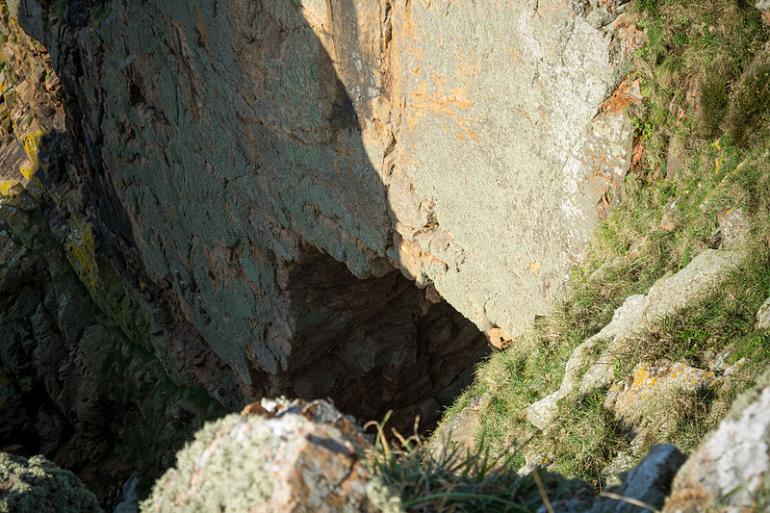It looks like you're using an Ad Blocker.
Please white-list or disable AboveTopSecret.com in your ad-blocking tool.
Thank you.
Some features of ATS will be disabled while you continue to use an ad-blocker.
15
share:
Scientists have stumbled upon a long-lost home for Neanderthals believed to have been lost through excavation 100 years ago.
In 2011, Natural Environment Research Council (NERC) scientists found preserved geological deposits in a cave on the island of Jersey, located off the coast of Normandy, France. The site, which houses sediments that date back to the last Ice Age, contains the only known late Neanderthal remains in northwestern Europe.
"We were sure from the outset that the deposits held some archaeological potential, but these dates indicate we have uncovered something exceptional," Dr. Matt Pope of the Institute of Archaeology at University College London, who helped lead the research, said in a statement. "We have a sequence of deposits which span the last 120,000 years still preserved at the site. Crucially, this covers the period in which Neanderthal populations apparently went 'extinct.'"
Other excavations took place at the site in the 1960s and 1970s, which uncovered remains from Pleistocene mammals, including a pile of bones and teeth of woolly mammoth and woolly rhinoceros. The latest excavation is the first to take place at the site since the early 1980s.
Read More Here
So These people

That lived here


Were able to kill and eat these

Wolly Rhino Wiki
That is just amazing to me. Until now I have never even heard of the Woolly Rhino and that is what really caught my attention. It has made me want to look into what else may have been running around back then. A Woolly Mammoth is pretty impressive but this blows my mind.
edit on 19-10-2013 by
Grimpachi because: (no reason given)
There's a very convincing theory that the Wooly Rhino is the source of the legend of the Unicorn
it's worrying to me that they lost the cave through excavation, not even sure what that entails!
it's worrying to me that they lost the cave through excavation, not even sure what that entails!
new topics
-
This is adorable you guys!
General Chit Chat: 4 hours ago -
Reprehensible Behavior
US Political Madness: 5 hours ago -
Defending the need for adherence to Old Testament commandments under the new covenant of Christ
Conspiracies in Religions: 6 hours ago -
Those Drones over NJ and elsewhere
Aliens and UFOs: 10 hours ago -
South Korean coup was an attempt to start WW3
World War Three: 10 hours ago -
Archer aviation and the NJ drones
Aircraft Projects: 11 hours ago
15
